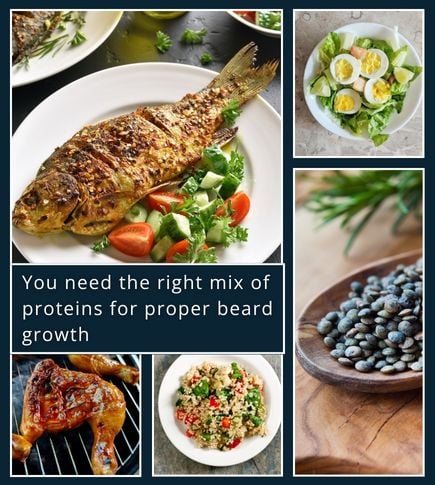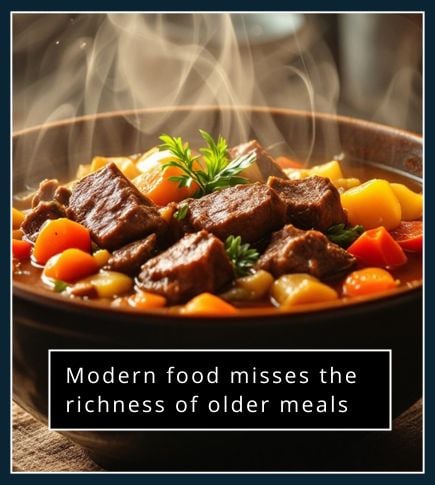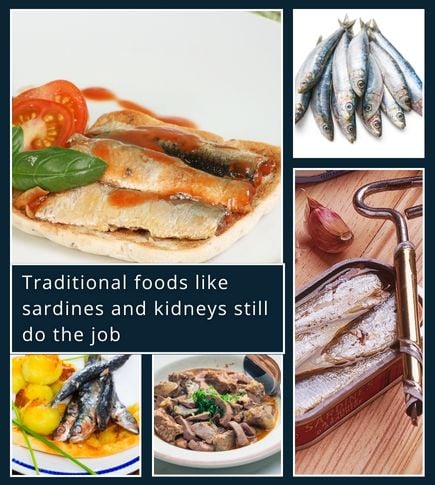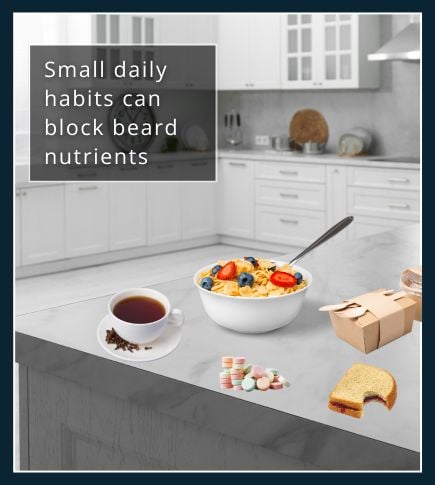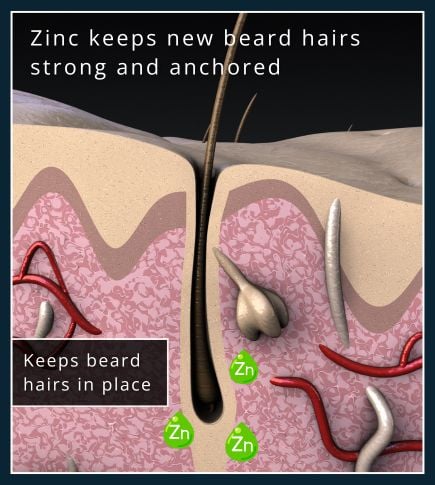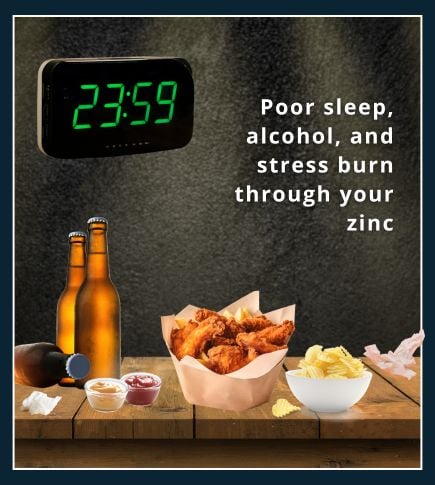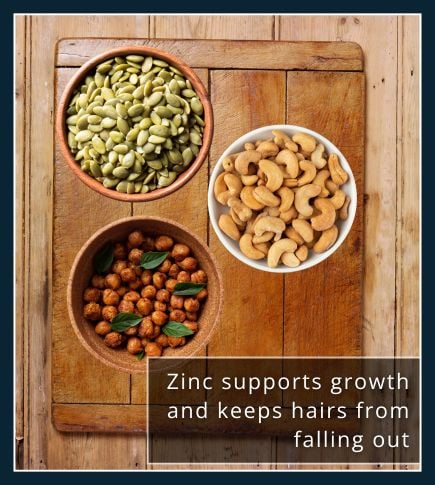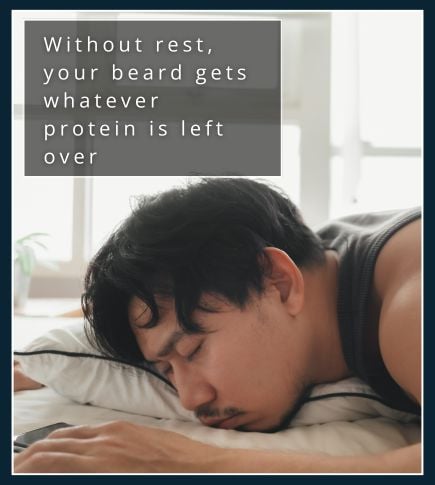
How Stress and Poor Sleep waste Beard Protein
Protein only works if your body has the breathing room to use it.
When you’re run down or low on sleep, protein is used for patching up tissues, fuelling your immune system, and keeping your energy up.
Your beard gets the leftovers, if anything.
Good sleep and a calmer pace do more for beard growth than an extra scoop of protein powder.
When you’re run down or low on sleep, protein is used for patching up tissues, fuelling your immune system, and keeping your energy up.
Your beard gets the leftovers, if anything.
Good sleep and a calmer pace do more for beard growth than an extra scoop of protein powder.

